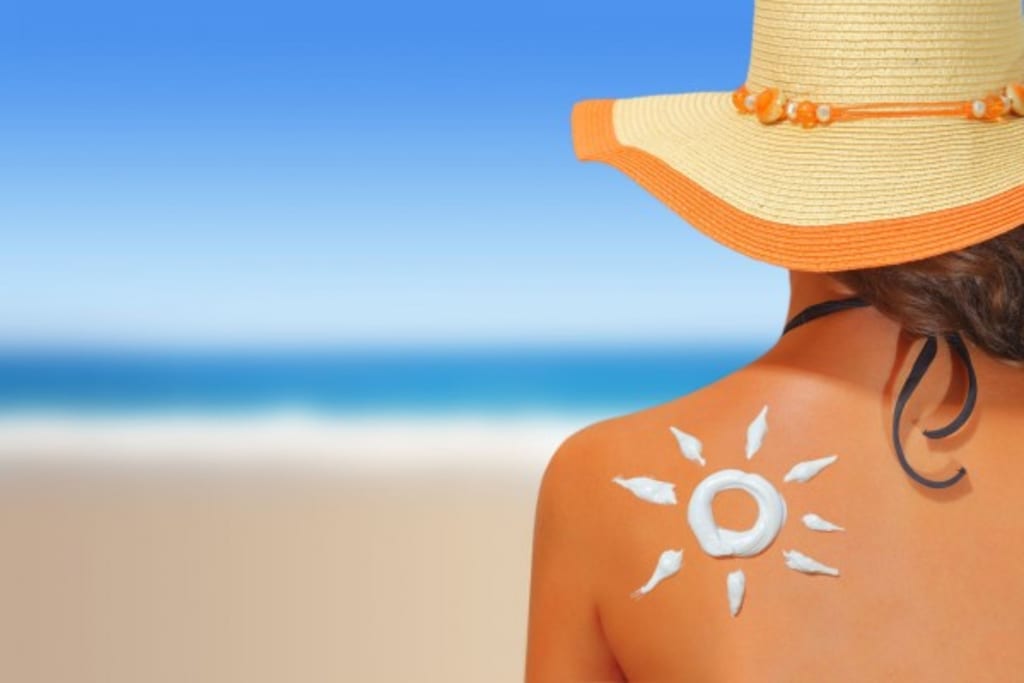
Sunscreen is an important part of skincare routines and here you can find out why, as well as to understand what it really is and how it works.
What does UV do to the skin?
UV is a type of radiation that gets emitted from the sun. Small amounts of UV allow vitamin D synthesis and can be antidepressant as well. However, too much UV exposure has severe consequences to skin. There are two types of UV radiations that affect us on Earth, which are UVA and UVB. UVA causes skin ageing and UVB causes skin burning, but both are responsible for pigmentation and cell damage, which may lead to skin cancer.
Do I need to wear SPF all year round?
The answer is yes. The sun’s UV rays can reach you even on a cloudy day. Common side effects such as skin ageing or skin pigmentation are cumulative, meaning that the more you protect your skin from UV, the less the damage your skin will show in the long run!
How do sun protection products work?
Sun protection products contain UV filters that prevent skin damage as a cause of UV radiation. There are two types of UV filters in sunscreens which have different modes of action, called chemical filters and physical filters. As a whole, sunscreens may contain a mix of physical and chemical filters in varying amounts, or just physical or just chemical. For this reason, it is important to know how each work in order for you to choose the right sunscreen product.
Chemical filters (also called organic) protect by absorbing UV light. Different types of chemical filters are needed as each filter may protect you from a small part of the UV spectrum. These filters also need to be absorbed by the skin before they become effective. When you get exposed to the sun, the efficacy of the chemical filter gradually decreases. This occurs because each filter molecule absorbs the UV radiation and its molecular shape changes and does not function as a filter anymore. This means that longer exposure to UV light leads to a decrease in effectiveness of the chemical filters. For this reason, it is important to reapply sunscreen with chemical filters every 2 to 4 hours.
Physical filters (also called inorganic) protect by reflecting UV light. Unlike chemical filters, physical filters are able to protect from the full UV spectrum (UVA and UVB). Since physical filters reflect light instead of absorbing it, they are chemically inert and do not undergo any chemical reaction, offering a more effective protection. Therefore, physical filters are more stable under sunlight than chemical filters, so they offer a more effective protection against sun rays. Reapplication of sunscreens with physical filters every 2 to 4 hours is also important due to actions such as sweating, swimming or rubbing of clothes can remove the sunscreen product from your skin and leave it unprotected.

What does SPF stand for and what bout UVA rating?
SPF stands for Sun Protection Factor and it measures the protection given by the sunscreen product against UV burns. However, this does not mean that a high SPF value will protect your skin form all UV spectrum. Only UVB rays burn skin, so the SPF number really indicates how well your skin is protected from UVB rays. But what about UVA? The UVA part of the spectrum causes ageing of skin as the radiation penetrates deeper into the skin layers. This is why it is very important to purchase sunscreens that have a broad spectrum of sunscreen protection. This means that these sunscreens are able to protect from both, UVA and UVB radiations.
Do all skin tones need to wear sun protection?
Although darker skin naturally produces more melanin than lighter skin, UV rays still damage everyone’s skin, regardless of ethnicity. The amount of melanin that skin can naturally produce is not enough to protect against cell mutation and tumour formation, so sunscreen is needed by all people. When exposed to the sun, melanin production increases and you may get a tan. However, this tan is a sign that your skin has been damaged. The tan is not protecting you any further from sun exposure, and sunscreen should be worn at all times by everyone.
Resources
About the Creator
Mar G
Cosmetics expert. Food lover. Plant obsessed.
A Chemist that seeks to express her tips and views on her favourite topics.
Family and friends are the main source of topic inspirations.






Comments
There are no comments for this story
Be the first to respond and start the conversation.